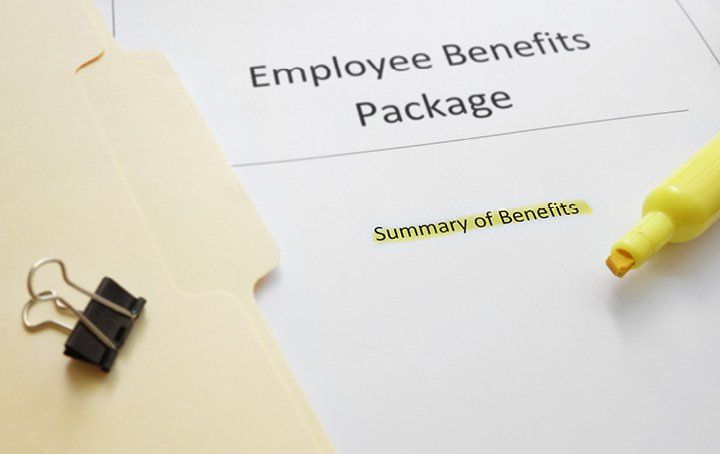01 Succession: the series: Inheriting property

Ok, not that Succession series. Each month we’ll bring you a new perspective on transferring property. Be it estate planning, managing an inheritance, or the various forms of business succession. This month, we look at the tax consequences of inheriting property.
Beyond the difficult task of dividing up your assets and determining who should get what, it’s essential to look at the tax consequences of how your assets will flow through to your beneficiaries.
When assets pass from a deceased individual to a beneficiary of the estate, the tax impact will generally depend on the nature of the asset and the tax characteristics of the beneficiary, such as their residency status.
Inheriting cash
When cash passes from a deceased individual to their estate and then to a beneficiary, generally, there should not be any direct tax issues to deal with, assuming that the cash is denominated in AUD.
Inheriting assets
Death is a taxing event. When a change of ownership of an asset occurs, generally, a capital gains tax event (CGT) is triggered. However, the tax rules provide some relief from CGT when someone dies. The basic rule is that a capital gain or loss triggered by a death is disregarded unless the asset is transferred to one of the following:
- An exempt entity (although there are some exceptions to this where the entity is a charity with deductible gift recipient status);
- The trustee of a complying superannuation fund; or
- A foreign entity and the asset is not classified as taxable Australian property.
The exemption applies if the asset passes to the deceased’s legal personal representative (i.e., executor) or to a beneficiary of the estate, which is not one of the entities listed above.
Once the asset has been transferred to the beneficiary, the beneficiary will need to manage the tax impact when they sell the asset.
Inheriting shares
Let’s assume you inherit an ASX listed share portfolio under your mother’s will. The tax outcome will depend on whether your mother was an Australian resident for tax purposes when she died, and whether the shares were acquired by your mother before or after 20 September 1985 (i.e., pre-CGT or post-CGT).
If your mother was an Australian resident for tax purposes when she died, and the shares were acquired post-CGT, then the cost base of the shares is normally based on the original purchase price. That is, the tax rules treat the inherited shares as if you purchased them. For example, if your mother purchased BHP shares for $17.82 on 2 January 1997, when you sell the shares, the gain is calculated based on your mother’s purchase price of $17.82.
If your mother was a resident of Australia when she died, and the shares were acquired pre-CGT, then the cost base of the shares is normally reset to their market value at the date of death. That is, if your mother passed away on 1 October 2024, the share price at close was $45.96. If you subsequently sold the shares in three years, the gain or loss is calculated using this value.
If your mother was a non-resident when she died, then the cost base of the shares is normally based on their market value at the date of death.
But it’s not all about the tax. Managing shares in your will can be difficult as prices and allocations change over time, and the companies you are invested in evolve. A portfolio that was once worth a small amount 20 years ago, might be worth significantly more when you die.
Inheriting property
Let’s assume you inherit an Australian residential property from your father under his will. For certain tax purposes, you are taken to have acquired the property at the date of his death.
The general rule is that the executor and/or beneficiaries of the estate inherit the cost base and reduced cost base of the CGT assets (the house) owned by the deceased just before their death, but this isn’t always the case, especially when it comes to pre-CGT properties and a property that was the main residence of the deceased individual just before they died.
Special rules exist that enable some beneficiaries or estates to access a full or partial main residence exemption on the inherited property. If the house was your father’s main residence before he died, he did not use the home to produce income (did not rent it out or use it as a place of business) and he was a resident of Australia for tax purposes, then a full CGT exemption might be available to the executor or beneficiary if either (or both) of the following conditions are met:
- The house is disposed of within two years of the date of death; or
- The dwelling was the main residence of one or more of the following people from the date of death until the dwelling has been disposed of:
- The spouse of the deceased (unless they were separated);
- An individual who had a right to occupy the dwelling under the deceased’s will; or
- The beneficiary who is disposing of the dwelling.
For example, if the house was your father’s main residence and was eligible for the full main residence exemption when he died, if you sell the house within the 2 year period, no CGT will apply. However, if you sell the house 10 years later, the CGT impact will depend on how the property has been used since the date of your father’s death.
An extension to the two year period can apply in limited certain circumstances, for example when the will is contested or is complex.
If your father did not live in the property just before he died, it still might be possible to apply the full exemption if your father chose to continue treating the home as his main residence under the ‘absence rule’. For example, if he was living in a retirement village for a few years but maintained the property as his main residence for CGT purposes (even if it was rented out).
If your father was not an Australian resident for tax purposes when he died, the cost base for CGT purposes will normally be based on the purchase price paid by your father if he acquired it post-CGT.
Inheriting foreign property
If you are an Australian resident who has inherited a foreign property or asset from an individual who was a non-resident just before they died, the cost base is normally taken to be the market value at the time of death. For example, if you inherited a house from your uncle in the UK, the cost base is likely to be the value of the house at the date of his death.
If a taxable gain arises on sale, then it is necessary to consider whether the CGT discount can apply, but the discount will sometimes be less than 50%. If the gain is also taxed overseas, then a tax offset can sometimes apply to reduce the amount of tax payable in Australia.
Managing an inheritance can become complex. For assistance with estate planning, or to understand the tax implications of an inheritance, please contact us.
Note: The material and contents provided in this publication are informative in nature only. It is not intended to be advice and you should not act specifically on the basis of this information alone. If expert assistance is required, professional advice should be obtained.
Need Help with your Business, Bookkeeping, Tax or SMSF requirements?
If you would like a little help, please get in touch with us for assistance. We can help with your business, bookkeeping, tax and SMSF requirements.
Please also note that many of the comments in this publication are general in nature and anyone intending to apply the information to practical circumstances should seek professional advice to independently verify their interpretation and the information’s applicability to their particular circumstances. Should you have any further questions, please get in touch with us for assistance with your SMSF, business, bookkeeping and tax requirements. All rights reserved. Brought to you by RGA Business and Tax Accountants. Liability Limited by a scheme approved under Professional Standards Legislation.















